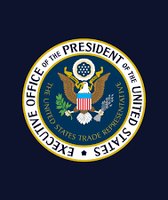Get PolitiFact in your inbox.
The day after Donald Trump’s decisive win in the South Carolina primary, Trump addressed concerns that his opposition to Obamacare isn’t strong enough, while Sen. Ted Cruz of Texas argued that most voters would prefer someone else to Trump.
Trump answered questions about conflicting answers he’s given on his views about the health care law. In an interview earlier in the week, Trump seemed to suggest he liked the provision of the law that requires people to have insurance. Trump told Meet the Press moderator Chuck Todd that he opposed the requirement and hoped to repeal the entire law and replace it with something different.
"We're going to have great plans, they're going to be a lot less expensive than Obamacare," Trump said. "They're going to be private. ... We're going to have a lot of different options. Right now, you have no options. You know why? Because the insurance company controls Obama, because they gave him a lot of money. That's why you have lines around the states. And you can't get competitive bidding."
Trump was referring to the Republican idea of allowing insurance companies to sell in multiple states in one fell swoop, rather than through the state-by-state permitting process that happens today. (The state-by-state rule predates Obama, by the way.) Trump also believes in health savings accounts and some sort of program for the very poor.
But we were struck by his statement that "right now, you have no options." We reached out to the Trump campaign to learn what he specifically meant and did not hear back. Trump’s comments are misleading because a major part of the health care law is set up to encourage competition and give people options.
Sign up for PolitiFact texts
Does the law achieve that? The short answer is, for most people it does. However, in more rural counties, residents might have to choose between only one or perhaps two insurance companies. Those people have few options. Trump’s statement rates Mostly False.
The health care exchanges
The new health care law sets up exchanges or marketplaces, primarily online, where people can pick from roughly comparable insurance plans for which the main difference is price. The law puts each plan into one of four tiers -- bronze, silver, gold and platinum. The more generous, and costly, the plan, the higher the tier.
The government’s Centers for Medicare and Medicaid Services reported that for 2016, about two-thirds of the counties have three or more insurers offering plans at the silver level. (This only has to do with plans on the exchanges. Employer-provided insurance is altogether separate.)
Out of about 2,600 counties in the Kaiser study, 10 percent, or about 260, have just one insurance company offering any policies.
"There are a lot of things to criticize about the Affordable Care Act -- too rigid and regulated in terms of the benefits that must be offered, etc. -- but most exchanges have several options available and some have many options," said Gail Wilensky, who headed the Medicare program during the George H.W. Bush administration and now is a health care analyst with Project Hope.
The Centers for Medicare and Medicaid Services reported that 9 out of 10 returning customers using the national exchange, healthcare.gov, were able to choose from among at least three companies.
The Kaiser Family Foundation noted that the lack of competition is greatest in rural communities. The higher the percentage of rural residents, the lower the number of insurers. "There are fewer potential enrollees to attract insurers and also fewer health care providers with whom they can contract," the report said.
It is worth noting, though, that because rural counties have fewer people, the fraction of the population that faces no real choice is less than than the fraction of counties where that is a problem. Most Americans live in urban areas where insurance competition is more robust.
Cruz on electability
Cruz made the case against Trump’s inevitability and argued that he, Cruz, was actually the best candidate for the job.
"For anyone who doesn't believe that Donald Trump is the best candidate to go head to head with Hillary Clinton in November, and that's about 70 percent of Republicans nationwide who don't think Donald Trump is the right guy," Cruz said on Feb. 21. "Our campaign is the only campaign that has beaten Donald Trump and that can beat Donald Trump."
This rosy forecast caught our attention (as well as the attention of Florida Sen. Marco Rubio, who made a similar claim on CBS’ Face the Nation). Is it true that 70 percent of Republicans "don’t think Donald Trump is the right guy?"
The Cruz campaign referred us to Trump’s Real Clear Politics polling average of 34.2 percent, as of Feb. 17, 2016. This figure represents the portion of Republican primary voters who prefer Trump as the party’s nominee.
"The point is, close to 70 percent of Republicans are choosing someone else," said Cruz spokesman Brian Phillips.
True. But by this logic, about 80 percent of Republicans don’t think Cruz — who’s polling at an average of 20.6 percent — "is the right guy" either.
Cruz’s interpretation leaves out some nuance. It rates Mostly True.
Even though Trump isn’t the top pick for many Republican primary voters, a good chunk of them would be perfectly happy with him (or Cruz or Rubio for that matter) as the party’s nominee.
Trump was the first or second choice for 47 percent of Republicans in a Fox News poll, for 38 percent in a NBC News/Wall Street Journal poll and for 44 percent in a USA Today/Suffolk University poll. A similar portion of GOP voters (39 to 45 percent) named Cruz and Rubio as their top two picks.
Trump is also viewed favorably by most of the party: about 62 percent of Republican voters in a Quinnipiac University poll and 62 percent in Economist/YouGov poll. Cruz and Rubio commanded similar numbers.
Conversely, in the Quinnipiac poll, more Republicans (31 percent) had an unfavorable opinion of Trump than Cruz or Rubio (23 percent). The three men clocked similar numbers Economist/YouGov poll.
Trump does the worst when voters are asked straight up if they would support him for the nomination. In an NBC/Wall Street Journal poll, 42 percent of Republicans said no. In comparison, 33 percent could not see themselves supporting Cruz, and 28 percent said the same about Rubio.
And finally, most Republicans would support any of the three men if they were the party’s nominee according to a CBS poll. But about a fifth of Republican voters said they wouldn’t back Trump (20 percent), Cruz (18 percent) or Rubio (17 percent) no matter what.
Our Sources
See fact-checks for sources.





















































